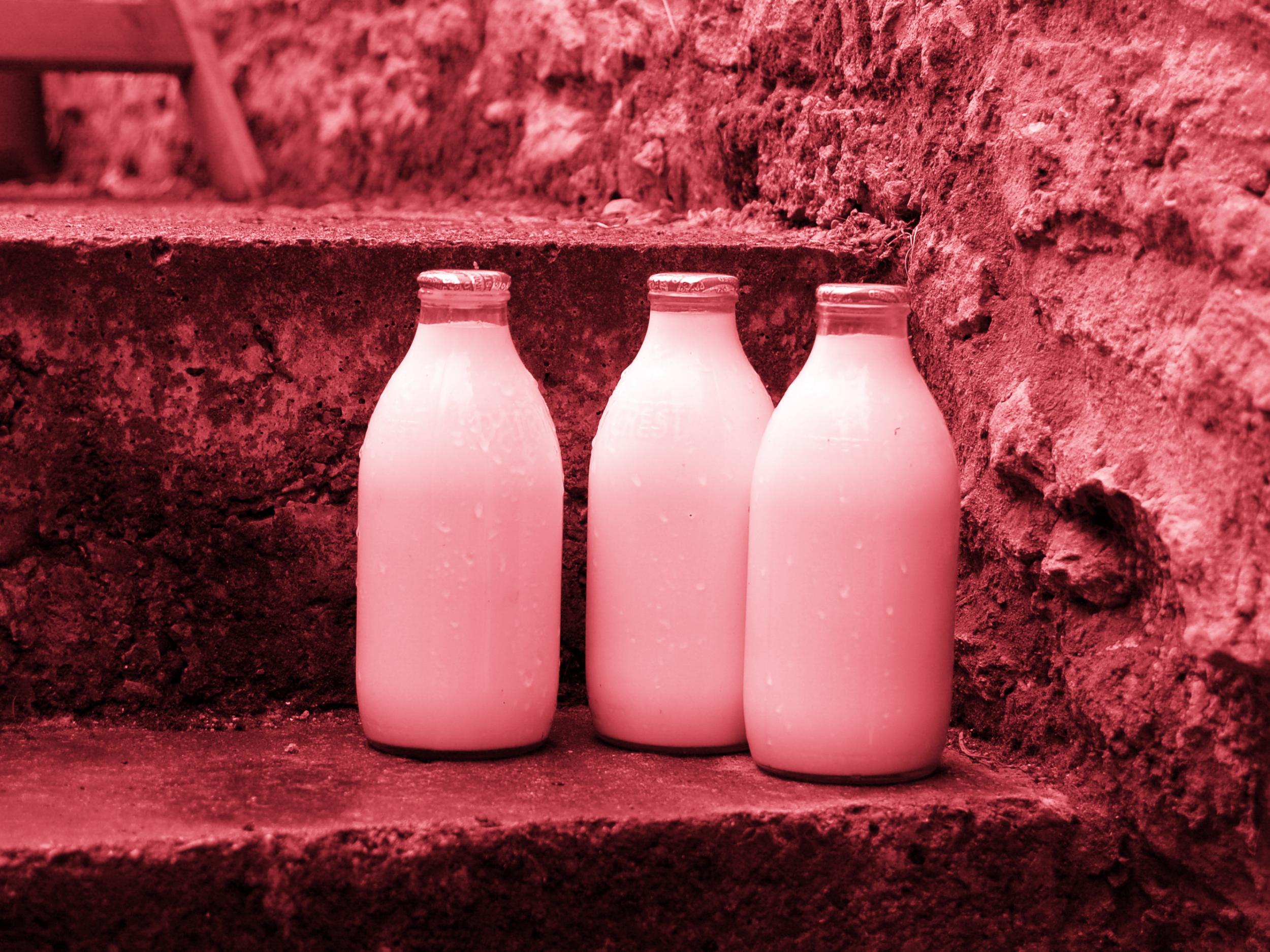Are glass milk bottles making a comeback because people want to avoid plastic?

Your support helps us to tell the story
From reproductive rights to climate change to Big Tech, The Independent is on the ground when the story is developing. Whether it's investigating the financials of Elon Musk's pro-Trump PAC or producing our latest documentary, 'The A Word', which shines a light on the American women fighting for reproductive rights, we know how important it is to parse out the facts from the messaging.
At such a critical moment in US history, we need reporters on the ground. Your donation allows us to keep sending journalists to speak to both sides of the story.
The Independent is trusted by Americans across the entire political spectrum. And unlike many other quality news outlets, we choose not to lock Americans out of our reporting and analysis with paywalls. We believe quality journalism should be available to everyone, paid for by those who can afford it.
Your support makes all the difference.Milkmen and women in floats used to be a common sight around the UK, delivering their glass bottles to communities up and down the country.
Then, in the 1990s, supermarkets switched to cheaper plastic bottles and drove many of them out of business.
Recent news reports about a resurgence in demand for glass milk bottles delivered by “milkies” have suggested this apparent demand comes from customers who want to phase plastic out of their lives. Are they right?
Are milk deliveries making a comeback?
Yes – at least according to some milkmen and women. Wales Online reported the case of Mark Woodman, who runs Woodman’s Dairy and has recently been “inundated with phone calls” asking about glass bottles.
“We’ve had 50 to 100 people call in this week, with 30 to 40 new customers off the internet looking to cut down on their use of plastic,” he said last week.
“It’s great for us – anything that gives us a bit of business back from the supermarkets is really good for us.”
In response, Mr Woodman has apparently spent thousands of pounds refurbishing his old milk float so he can make deliveries in the Rumney district of Cardiff.
According to The Telegraph, Mr Woodman’s customers are not alone. The newspaper quoted figures from Dairy UK, which suggest there has been an increase over the past two years from 800,000 doorstep deliveries per day to one million.
However, this may not be entirely accurate: “I can confirm the figure of one million doorstep deliveries that was used was ours,” said a spokesperson from Dairy UK.
“However, we’re not familiar with the figure of 800,000 that was used in The Telegraph, we’re not sure where this originated from.
“Our own figures show doorstep deliveries at a steady and fairly stable 3 per cent and so I’m afraid we are not able to confirm an increase in the level of doorstep deliveries,” they said.
Has this got anything to do with people wanting to avoid plastic waste?
The UK has gone plastic waste mad these past few months, with measures to tackle plastic pollution featuring prominently in news outlets as the Government makes them the cornerstone of its environmental plans.
The result has been an increased awareness of plastic pollution among both businesses and consumers, with several companies making widely publicised pledges to cut down on plastic packaging. The switch from plastic to glass bottles certainly fits into this trend.
“With all the recent news on the use of plastic, people are wanting milk in glass bottles as one way to help cut down their plastic consumption,” Roseanne McEwan, brand development manager at Cotteswold Dairy, told The Telegraph.
When people picture a milkman or woman delivering milk, they picture it in traditional glass bottles, but according to Dairy UK this is not always the case – plenty of delivered milk comes in plastic containers.
The figure of one million refers to doorstep deliveries in general, and, according to a Dairy UK spokesperson, “it is not possible to tell what percentage is glass and what is plastic”.
So while glass is generally considered an environmentally friendly substitute for plastic, any changes in the number of milk deliveries do not necessarily mean the milk being delivered comes in glass bottles.
Could there be any other reasons for a supposed resurgence in milk deliveries?
This is not the first time the press has declared the rebirth of the milk float.
Back in 2016, various newspapers covered an apparent increase in demand for milk deliveries in trendy parts of the UK like East London and Bristol.
The boost was attributed to a taste for anything retro among young “hipsters” living in these areas.
Dairy UK’s data suggest this supposed uptick was not as widespread as those reports implied, but that has not stopped individual milkmen and women cashing in, as Shoreditch milkman Kevin Read told The Telegraph at the time.
“We’re not asking any questions, we’re not complaining. We’re just making the most of it,” he said.
Join our commenting forum
Join thought-provoking conversations, follow other Independent readers and see their replies
Comments